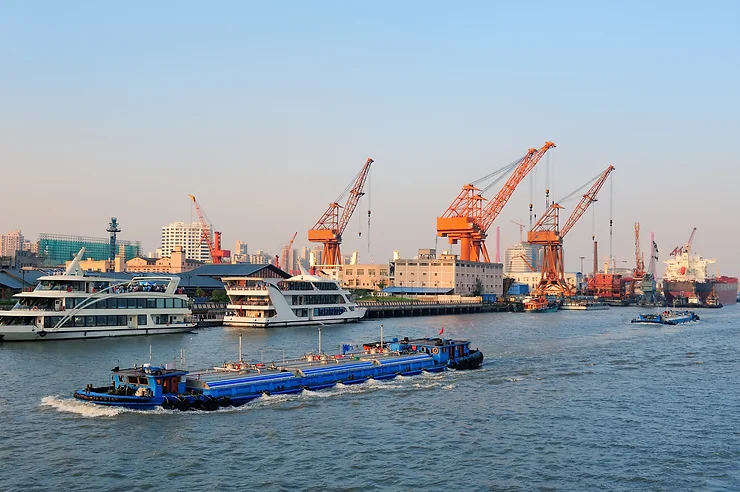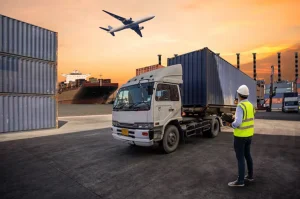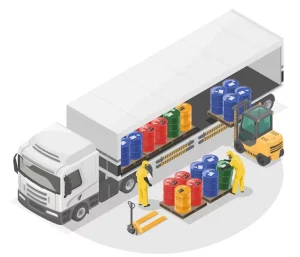What is Sea Freight?
Sea freight, also known as ocean freight, is the transportation of goods via cargo ships across the seas and oceans. It’s a cost-effective and reliable way to move large volumes of cargo internationally.
The Importance of Sea Freight from China to Georgia
Sea freight from China to Georgia is of significant importance for various reasons, both for the global economy and for businesses engaged in international trade. Here are some key points highlighting the importance of this shipping route:
-
Global Trade Connectivity: Sea freight is a vital component of global trade networks. It enables the movement of goods between regions and countries, facilitating international commerce. The route from China to Georgia is part of a larger global trade network, contributing to the flow of products worldwide.
-
Economic Growth: The flow of goods through sea freight supports economic growth in both China and Georgia. It allows Chinese manufacturers and exporters to access markets in Georgia and neighboring countries while providing Georgian businesses and consumers access to a wide range of Chinese products.
-
Diverse Cargo Types: Sea freight can accommodate a wide range of cargo types, from raw materials to finished products. This diversity in cargo types allows various industries, including manufacturing, retail, and agriculture, to rely on sea freight for their supply chain needs.
-
Cost-Effective Transportation: Sea freight is often more cost-effective than air freight for transporting large volumes of goods over long distances. This cost advantage makes it an attractive option for businesses looking to reduce transportation expenses and remain competitive in the global market.
-
Infrastructure Development: The sea freight route between China and Georgia relies on well-developed port infrastructure on both ends. Investment in these ports not only supports trade but also contributes to regional economic development and job creation.
-
Belt and Road Initiative (BRI): The China-Georgia sea freight route is part of China’s Belt and Road Initiative, a massive infrastructure and trade development project that aims to connect China with various parts of the world, including Europe. This initiative has the potential to enhance economic ties between China and Georgia, as well as other countries along the route.
-
Trade Balance: For both China and Georgia, sea freight plays a role in achieving a favorable trade balance. China exports a wide range of products, while Georgia may import machinery, electronics, textiles, and other goods. Managing this trade balance is crucial for both economies.
Sea Freight from China to Georgia: Pros & Cons
Sea freight from China to Georgia, like any mode of transportation, has its pros and cons. Businesses and individuals considering this shipping option should carefully evaluate these factors to make informed decisions. Here are the pros and cons of sea freight from China to Georgia:
Pros:
-
Cost-Effective: Sea freight is generally more cost-effective than air freight for transporting large volumes of goods over long distances. This cost advantage is especially significant for businesses dealing with bulk cargo or products with lower profit margins.
-
Suitable for Large Cargo: Sea freight is well-suited for transporting oversized and heavy cargo that may not fit in standard containers. Specialized containers and equipment are available for various types of goods.
-
Reliability: Shipping lines offer scheduled departures and arrivals, providing a level of predictability and reliability in terms of delivery times.
-
Environmental Considerations: While not entirely environmentally neutral, sea freight is often considered a more environmentally friendly option than air freight due to lower carbon emissions per unit of cargo transported.
-
Access to Global Markets: Sea freight connects China and Georgia to global markets, allowing businesses to access a wide customer base and source materials from around the world.
-
Infrastructure: Major ports in China and Georgia have well-developed infrastructure and handling facilities to efficiently manage sea freight traffic.
Cons:
-
Long Transit Times: One of the significant drawbacks of sea freight is its longer transit times compared to air freight. Shipments can take weeks or even months to reach their destination, which may not be suitable for time-sensitive goods.
-
Limited Port Access: Sea freight is highly dependent on the availability of suitable ports. Inland destinations may require additional transport via trucks or railways, adding time and cost to the shipping process.
-
Weather and External Factors: Sea freight can be affected by adverse weather conditions, natural disasters, and external factors like port congestion or labor strikes, which can lead to delays.
-
Handling and Transshipment: Cargo may need to be transshipped at various ports during the journey, increasing the risk of damage, loss, or theft.
-
Documentation and Customs: Dealing with international customs regulations and documentation can be complex and time-consuming. Errors or delays in paperwork can disrupt the shipping process.
-
Storage Costs: If cargo is not immediately picked up upon arrival, storage costs at the destination port can accumulate.
Sea Freight from China to Georgia: Consolidated Cargo
LCL shipping
Consolidated cargo, often referred to as less-than-container load (LCL) shipping, is a shipping method where multiple shippers with smaller cargo quantities share a single shipping container. This approach is commonly used in sea freight from China to Georgia and has its advantages and considerations:
Advantages of Consolidated Cargo (LCL):
-
Cost Savings: LCL shipping allows smaller shippers to benefit from the cost advantages of containerized shipping without having to fill an entire container. This can result in cost savings compared to booking an entire container for a smaller cargo quantity.
-
Accessibility: LCL shipping makes international trade more accessible to small and medium-sized businesses that may not have the volume to justify a full container. It allows these businesses to participate in global trade without the financial burden of a full container.
-
Flexibility: Shippers have the flexibility to send smaller quantities of goods without committing to a large container. This flexibility can be particularly valuable for businesses with varying shipping needs.
-
Global Reach: LCL services are available on a wide range of routes, including from China to Georgia. This allows shippers to reach global markets efficiently.
Considerations for Consolidated Cargo (LCL) Shipping:
-
Transit Time: LCL shipments may have longer transit times compared to full container loads (FCL) because the container may need to be consolidated and deconsolidated at multiple stops along the route.
-
Handling and Potential Damage: Multiple cargo shipments are packed into the same container, which can increase the risk of handling and potential damage during loading and unloading.
-
Documentation and Customs: Each individual shipper within the consolidated cargo must provide the necessary documentation and clear customs for their specific shipment. This can add complexity to the process.
-
Security and Tracking: It can be more challenging to monitor and secure individual shipments within a consolidated container.
-
Space Availability: Space in the consolidated container is subject to availability, so it’s essential to book in advance and coordinate with the shipping agent to ensure your cargo is accommodated.
-
Cost Structure: LCL shipping rates are typically based on the volume or weight of the cargo, so it’s crucial to understand the cost structure and any additional charges.
-
Consolidation and Deconsolidation Points: LCL shipments may involve multiple consolidation and deconsolidation points, which can affect the overall efficiency and timing of the shipment.
In summary, consolidated cargo (LCL) shipping is a practical option for smaller shippers looking to transport goods from China to Georgia and other destinations. It offers cost savings and accessibility but requires careful planning, communication, and coordination to ensure a smooth shipping process and mitigate potential challenges.
FCL shipping
Full Container Load (FCL) shipping is a common and straightforward method for sea freight from China to Georgia when you have enough cargo to fill an entire shipping container. Here are the key aspects of FCL shipping:
1. Container Selection:
-
Determine the appropriate type and size of container based on your cargo volume, weight, and specific requirements. Common container sizes include 20-foot (20ft) and 40-foot (40ft) containers.
2. Packaging and Loading:
-
Properly pack and secure your cargo inside the selected container to prevent damage during transit. Shippers are responsible for loading and securing their goods.
3. Booking and Reservation:
-
Contact a shipping line or freight forwarder to make a booking and reserve space on a vessel. Specify the origin in China and destination in Georgia, as well as the container size and any special requirements.
4. Documentation:
-
Prepare and provide all necessary documentation, including a commercial invoice, packing list, bill of lading, and any relevant permits or licenses. Ensure that customs documentation is complete and accurate.
5. Customs Clearance:
-
Work with customs brokers or agents in both China and Georgia to facilitate customs clearance. Ensure compliance with all customs regulations and pay any applicable duties and taxes.
6. Delivery to Port:
-
Transport the loaded container to the designated port of origin in China. Ensure that you meet the shipping line’s cutoff time for container drop-off.
7. Cargo Inspection and Sealing:
-
The container may be inspected and sealed by customs or shipping line authorities at the port of origin.
8. Ocean Freight:
-
The container is loaded onto a vessel for transport across the sea to the port of destination in Georgia. Transit times can vary depending on the shipping route and vessel schedules.
9. Port of Entry in Georgia:
-
Upon arrival in Georgia, the container is unloaded from the vessel and cleared through customs. Ensure that you have the necessary documentation and pay any customs fees.
10. Delivery to Final Destination:
-
After customs clearance, arrange for the transportation of the container from the port to your final destination within Georgia. This may involve using trucks, railways, or a combination of transportation methods.
11. Return of the Empty Container:
-
If you rented the container, arrange for its return to the shipping line’s designated depot or drop-off location. Be mindful of any demurrage or detention fees if you exceed the allowed container usage time.
12. Unloading and Distribution:
-
Unload the cargo from the container at your facility or warehouse in Georgia. Distribute the goods as needed to their respective destinations.
Pros of FCL Shipping:
-
Security: Your goods are loaded into a dedicated container, reducing the risk of damage or loss during transit.
-
Predictable Transit Times: FCL shipments often have more predictable transit times compared to consolidated (LCL) shipments.
-
Flexibility: You have control over the entire container, allowing you to customize the loading and packing to your specifications.
Cons of FCL Shipping:
-
Higher Costs: FCL shipping may be more expensive than LCL shipping for smaller cargo quantities, as you are responsible for the entire container’s cost.
-
Container Management: Managing containers and ensuring their timely return can be administratively demanding.
-
Space Considerations: For businesses with smaller cargo volumes, filling an entire container may not be cost-effective.
-
Limited Volume Flexibility: You must plan and book in advance, making it less flexible for businesses with fluctuating shipping needs.
FCL shipping is an efficient and secure option for businesses with larger cargo volumes and consistent shipping requirements. It offers greater control over the shipping process but may require careful planning and coordination.
Ports of China and Georgia
Sea freight from China to Georgia typically involves the use of several sea ports on both the Chinese and Georgian sides of the journey. Here are some of the primary sea ports that are commonly used for shipping between China and Georgia:
Major Chinese Ports
-
Shanghai Port: Shanghai is one of China’s busiest and largest ports, serving as a major gateway for international trade. It offers a wide range of shipping options and connects to many global destinations, including Georgia.
-
Ningbo Port: Ningbo, located south of Shanghai, is another significant port for sea freight. It provides efficient access to international markets and offers containerized shipping services to Georgia.
-
Shenzhen Port: Shenzhen, along with its Yantian and Shekou terminals, is a major port in southern China. It handles a substantial amount of container traffic and serves as a vital link in the sea route to Georgia.
-
Tianjin Port: Tianjin, in northern China, is a major gateway to the Bohai Bay and serves as an important port for shipping goods to various destinations, including Georgia.
Ports in Georgia
-
Port of Poti: Poti is Georgia’s largest and busiest sea port, located on the Black Sea coast. It serves as a key entry point for sea freight and is well-connected to other parts of Georgia and the region.
-
Port of Batumi: Batumi, also situated on the Black Sea, is another important port in Georgia. It handles various types of cargo, including containerized shipments.
When planning sea freight from China to Georgia, the choice of ports will depend on various factors, including the specific origin and destination within China and Georgia, transit times, shipping lines, and the type of cargo being transported








